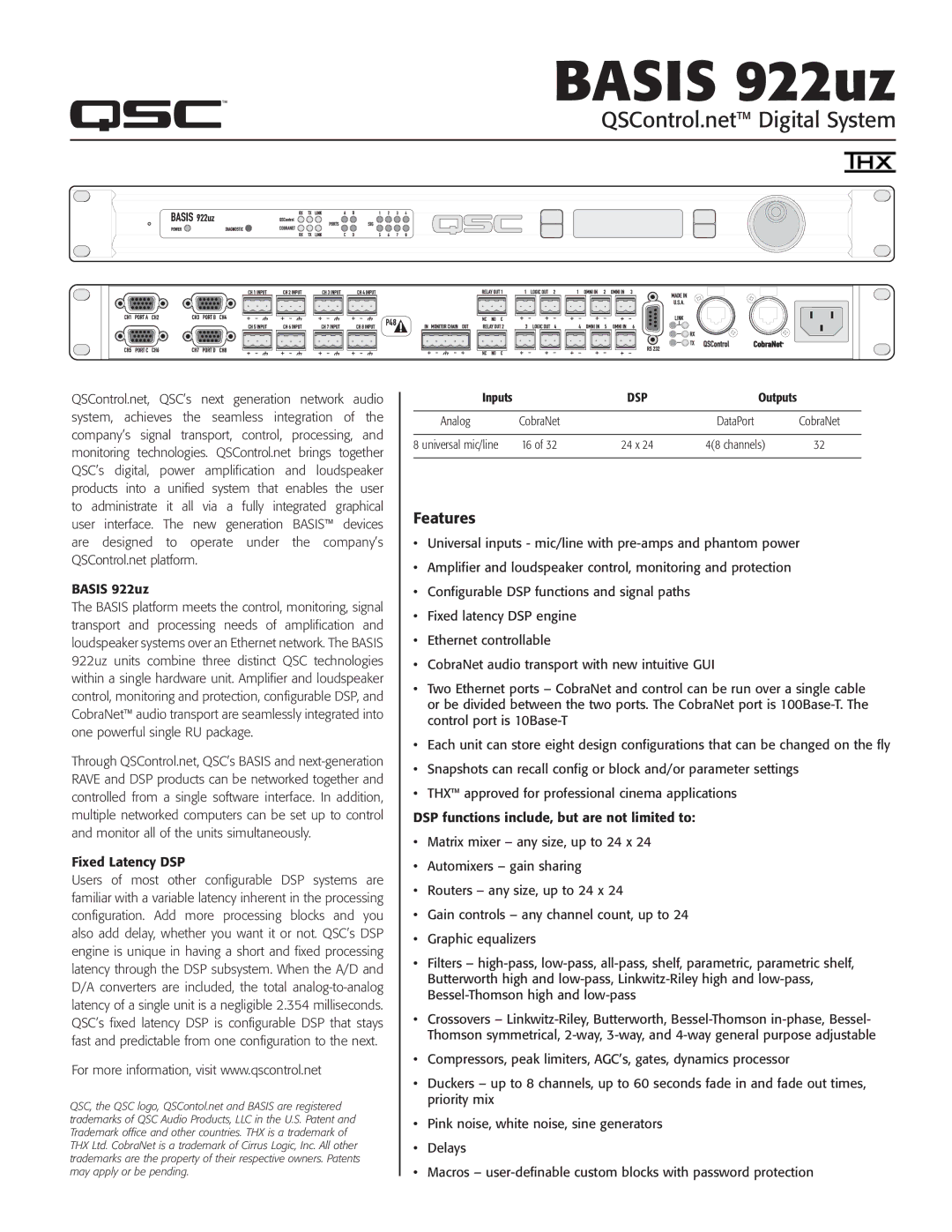922uz specifications
The QSC Audio 922uz stands out as a versatile and powerful audio solution designed for both professional sound engineers and casual users seeking high-quality audio performance. This unit is engineered to deliver superior sound quality and has become a popular choice in various audio environments, including live events, installations, and studio settings.One of the standout features of the QSC Audio 922uz is its impressive power output, making it suitable for large venues. It offers a robust amplifier that can drive a significant amount of speakers, ensuring that your sound remains clear and powerful, even at high volumes. With a power rating of 250 watts per channel at 4 ohms, it can seamlessly handle demanding audio applications.
The audio processing capabilities of the 922uz are enhanced by its advanced DSP (Digital Signal Processing) technology. This built-in DSP provides users with a range of preset EQ settings, time alignment features, and crossover functionality. With customizable parameters, users can tailor their audio output to fit the acoustics of any environment, achieving near-perfect sound reproduction.
In terms of connectivity, the QSC 922uz is equipped with a variety of inputs and outputs, making it easy to integrate into existing audio systems. It includes multiple XLR and TRS inputs, as well as balanced outputs, allowing for flexible connection options. This versatility is further complemented by its compatibility with QSC's remote management software, enabling users to monitor and control their audio setup from a distance.
The design of the QSC Audio 922uz emphasizes durability and reliability. Constructed with robust materials, it is designed to withstand the rigors of touring and installation environments. Its user-friendly interface includes an intuitive LCD screen, making setup and adjustments straightforward even in high-pressure situations.
Overall, the QSC Audio 922uz combines powerful audio performance with advanced technology and user-friendly features. Whether for live sound reinforcement or installed sound applications, it delivers exceptional audio quality and reliability that audio professionals and enthusiasts can depend on. Its blend of power, versatility, and durability makes it a strong contender in the audio market, appealing to a wide range of users seeking premium sound experiences.

